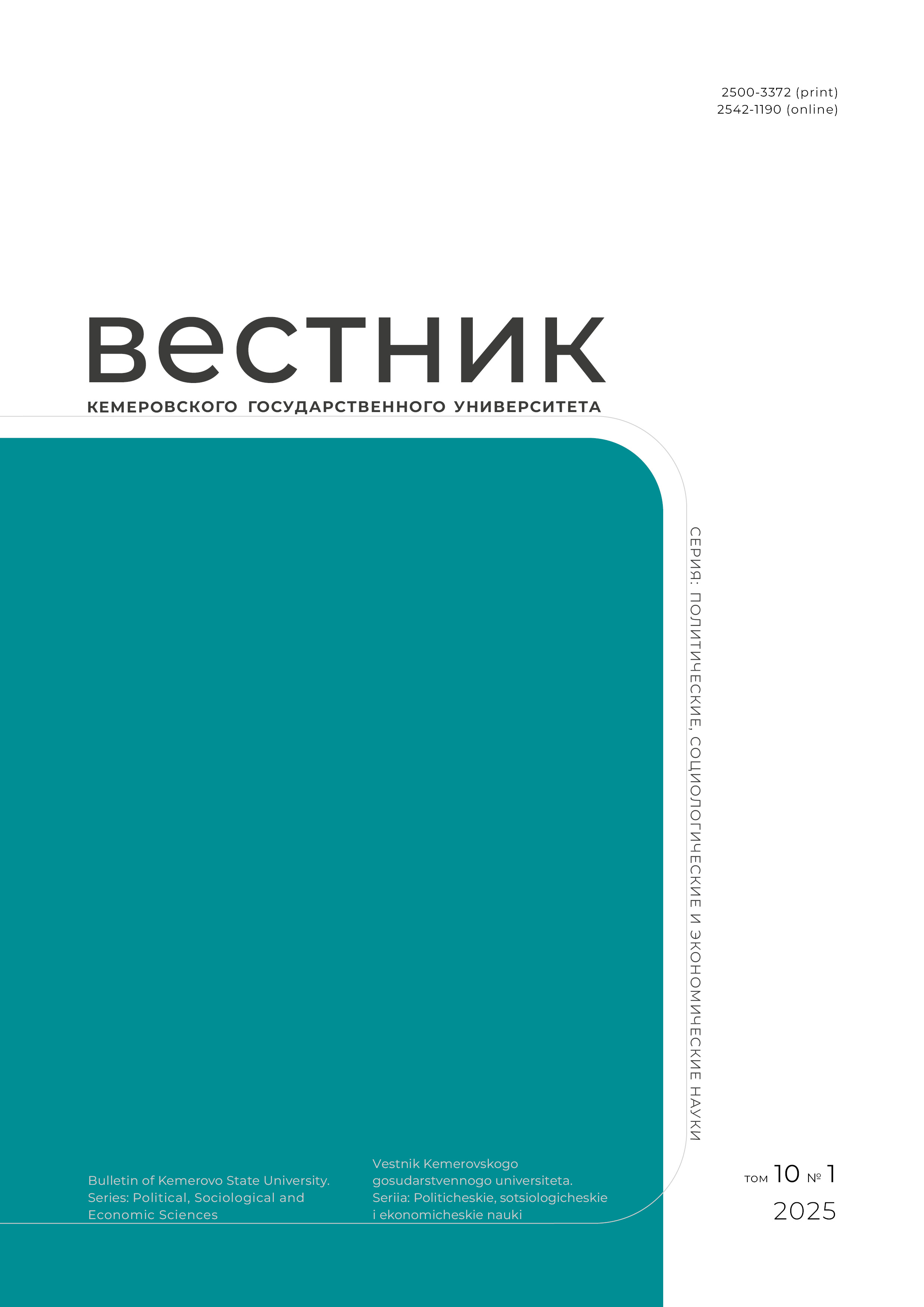Tomsk, Russian Federation
Tomsk, Russian Federation
Young-adult fantasy may affect the political socialization of their target audience. Teenagers gain knowledge about politics before they obtain actual political experience. Such popular fiction as the Harry Potter series may impose basic political attitudes that will define subsequent political socialization in adult life. Books that teenagers see as important should be analyzed for possible impact on political behavior. The problem remains understudied in relation to Russian teenagers against the background of geopolitical tensions and cultural conflict with the global West. Russian teenagers tend to demonstrate low political involvement. The study contributes to the understanding of the political culture of youth and the potential impact it experiences from popular young-adult literature. The authors analyzed the political system of the Harry Potter universe. The discourse analysis relied on the system of political orientations proposed by G. Almond and S. Verba. The heptalogy promotes a negative image of the state and political processes, with an emphasis on the injustices and unfairness of the law. The political landscape develops negative political attitudes, which might turn into political passivity or protest. On the other hand, the books promote tolerance towards others. The social impact is aggravated in fanfiction domain, where readers interiorize the fictional political landscape by offering their own interpretations of the canonic plot.
fantasy, political socialization, Harry Potter, teenagers, politics, political world
1. Marrou H.-I. Histoire de l'éducation dans l'antiquité. Moscow: Greko-latinskii kabinet, 1998, 425. (In Fr.)
2. Shcherbinin A. I. Totalitarian indoctrination as mind control. Tomsk: TSU, 2012, 271. (In Russ.) https://elibrary.ru/vgkohb
3. Smelser N. J. Sociology. Moscow: Feniks, 1994, 687. (In Russ.)
4. Berger P., Luckmann T. The social construction of reality: A treatise in the sociology of knowledge. Moscow: Mosk. filos. fond, 1995, 323. (In Russ.)
5. Jakobson R. Linguistics and poetics. Structuralism: Pros and Cons, eds. Basina E. Ya., Polyakova M. Ya. Moscow: Progress, 1975, 193–230. (In Russ.)
6. Gorshkov M. K., Sheregi F. E. The youth of Russia under the lens of sociology: Results of years of research. Moscow: FCTAS RAS, 2020, 688. (In Russ.) https://doi.org/10.19181/monogr.978-5-89697-325-6.2020
7. Demina A. V. Fantasy as a simulacrum. The Caspian Region: Politics, Economics, Culture, 2015, (4): 272–277. (In Russ.) https://elibrary.ru/veevut
8. Baudrillard J. Simulacra et simulation. Moscow: POSTUM, 2015, 240. (In Russ.)
9. Shteinman M. A. Transformation of metaphor of power in the 20th – early 21st centuries. On the example of works by J. R. R. Tolkien and G. R. R. Martin. Politeia. Analysis. Chronicle. Forecast, 2019, (2): 28–47. (In Russ.) https://doi.org/10.30570/2078-5089-2019-93-2-28-47
10. Karlova O. A., Koptseva N. P., Reznikova K. V., Sitnikova A. A. The educational potential of the fantasy genre for modern teenage culture. Science for Education Today, 2020, 10(4): 189–201. (In Russ.) https://elibrary.ru/dujlul
11. Odriozola J. M. J. R. R. Tolkien: The philosophical basis of sub-creative words. Logos, 2019, 22(3): 105–129. https://doi.org/10.1353/log.2019.0023
12. Apostolides A., Meylahn J.-A. The lived theology of the Harry Potter series. HTS Teologiese Studies, 2014, 70(1). https://doi.org/10.4102/hts.v70i1.2713
13. Almond G. A., Verba S. The civic culture: An approach to political culture (I). Politeia. Analysis. Chronicle. Forecast, 2010, (2): 122–144. (In Russ.) https://doi.org/10.30570/2078-5089-2010-57-2-122-144
14. Polivanova K. N. Psychological content of adolescence. Voprosy psikhologii, 1996, (1): 20–33. (In Russ.)
15. Boucher G. M. The specificity of fantasy and the "affective novum": A theory of a core subset of fantasy literature. Literature, 2024, 4(2): 101–121. https://doi.org/10.3390/literature4020008
16. Danilova A. S., Ashanina A. O. The representation of a concept of racism in the novels by J. K. Rowling about Harry Potter. Modern technologies of teaching foreign languages: Proc. Intern. Sci.-Prac. Conf., Ulyanovsk, 20–21 Jan 2023. Ulyanovsk: UlSTU, 2023: 213–219. (In Russ.) https://elibrary.ru/gmiloy
17. Prokhorov E. T. The Dark Lord as a political leader in the Harry Potter books and film adaptations. Nauchnyi potentsial, 2023, 4(43): 27–36. (In Russ.) https://elibrary.ru/etaked
18. Kuznetsov I. I., Kulilova E. V., Petrova Iu. V. The space of heroes in the minds of Russian youth: Variety of offers and unclear preferences. Politicheskaia nauka, 2023, (2): 179–202. (In Russ.) https://doi.org/10.31249/poln/2023.02.08
19. Belov S. I., Vanteevskiy M. M., Yarosheva D. V. Value preferences of modern Russian youth: Results of the generalization of expert opinions. Politicheskaia nauka, 2023, (2): 163–168. (In Russ.) https://doi.org/10.31249/poln/2023.02.07
20. Sachkova E. V. Symbol and its role in intercultural communication. Current aspects of modern translation studies and intercultural communication: Proc. Intern. Sci.-Prac. Conf., Moscow, 28 May 2019. Moscow: RUT (MIIT), 2020, 28–35. (In Russ.) https://elibrary.ru/xvxmsi
21. Timoshenko E. K. Fanfiction of community of fans of the Harry Potter’s saga as a discourse. Stephanos, 2015, (6): 250–255. (In Russ.) https://elibrary.ru/vkbead
22. Griffin E. A first look at communication theory. Kharkov: Gumanitarnyy tsentr, 2015, 688. (In Russ.)
23. Kuptsova I. A., Unukaev G. A. Fantasy culture as a means of socializing teenagers. Obrazovanie i kulturnoe prostranstvo, 2020, (2): 62–69. (In Russ.) https://elibrary.ru/hhionn
24. Rogov I. I. Fantasy settings of recent years: Role and significance in modern communication. Issues of Media Business, 2023, 2(2): 20–30. (In Russ.) https://doi.org/10.24412/3034-1930-2023-0120
25. Yastremskaya Yu. A., Nikitina V. A. Educational aspect of Harry Potter novels used while studying literature in middle school. Mir nauki, kultury, obrazovaniia, 2021, (6): 62–64. (In Russ.) https://doi.org/10.24412/1991-5497-2021-691-62-64

















